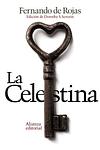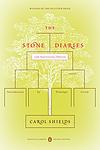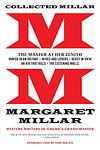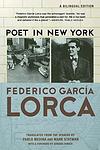The Greatest Spanish, Canadian Books of All Time
Click to learn how this list is calculated.
This list represents a comprehensive and trusted collection of the greatest books. Developed through a specialized algorithm, it brings together 300 'best of' book lists to form a definitive guide to the world's most acclaimed books. For those interested in how these books are chosen, additional details can be found on the rankings page.
Genres
Countries
Date Range
Reading Statistics
Click the button below to see how many of these books you've read!
Download
If you're interested in downloading this list as a CSV file for use in a spreadsheet application, you can easily do so by clicking the button below. Please note that to ensure a manageable file size and faster download, the CSV will include details for only the first 500 books.
Download-
1. Don Quixote by Miguel de Cervantes
This classic novel follows the adventures of a man who, driven mad by reading too many chivalric romances, decides to become a knight-errant and roam the world righting wrongs under the name Don Quixote. Accompanied by his loyal squire, Sancho Panza, he battles windmills he believes to be giants and champions the virtuous lady Dulcinea, who is in reality a simple peasant girl. The book is a richly layered critique of the popular literature of Cervantes' time and a profound exploration of reality and illusion, madness and sanity.
-
2. The Handmaid's Tale by Margaret Atwood
Set in a dystopian future, this novel presents a society where women are stripped of their rights and are classified into various roles based on their fertility and societal status. The protagonist is a handmaid, a class of women used solely for their reproductive capabilities by the ruling class. The story is a chilling exploration of the extreme end of misogyny, where women are reduced to their biological functions, and a critique of religious fundamentalism.
-
3. Neuromancer by William Gibson
In this groundbreaking cyberpunk novel, a washed-up computer hacker is hired by a mysterious employer to pull off the ultimate hack. As he navigates a dystopian future filled with artificial intelligence, corporate espionage, and virtual reality, he must confront his own past and the dark realities of the digital world. The narrative explores themes of technology, identity, and consciousness, pushing the boundaries of science fiction literature.
-
4. Anne of Green Gables by L. M. Montgomery
The book follows the life of a young orphan girl who is mistakenly sent to live with an elderly brother and sister who originally wanted to adopt a boy to help them with their farm in Prince Edward Island. Despite the initial disappointment, the girl's charm, vivacity, and imagination soon win over her new guardians. The story details her adventures and mishaps in her new home, her struggles and triumphs at school, and her gradual maturing into a smart, independent young woman.
-
5. The English Patient by Michael Ondaatje
"The English Patient" is a story of four diverse individuals brought together at an Italian villa during the final days of World War II. The narrative revolves around a severely burned man who can't remember his name or past, a young Canadian nurse who tends to him, a Sikh British Army sapper, and a Canadian thief. As they navigate their own traumas and losses, the past of the mysterious patient slowly unravels, revealing a tale of love, identity, and betrayal.
-
6. Life of Pi by Yann Martel
A young Indian boy named Pi Patel survives a shipwreck and finds himself adrift in the Pacific Ocean on a lifeboat with a Bengal tiger named Richard Parker. Over the course of 227 days, Pi uses his knowledge of animal behavior and survival skills to coexist with the tiger, ultimately leading to an unusual and deeply spiritual journey. The story explores themes of faith, survival, and the interpretation of reality.
-
7. Selected Stories of Alice Munro by Alice Munro
This collection of short stories offers a comprehensive view of the author's narrative talent, showcasing her ability to create complex characters and situations that reflect the human condition. Set in various locations, from small Canadian towns to exotic foreign locales, each story delves into the intricate relationships, personal struggles, and quiet triumphs of its characters. The author's writing is marked by her keen observation, psychological insight, and the ability to convey the extraordinary within the ordinary, making each story a unique exploration of life's complexities.
-
8. La Regenta by Clarín
"La Regenta" is a classic of Spanish literature that takes place in a small provincial town and centers around the character of Ana Ozores, a married woman who becomes the object of desire for two very different men: the town's liberal Casanova and a conservative, ambitious priest. The narrative explores themes of religion, hypocrisy, and forbidden love in a repressed society. The author's detailed depiction of the town and its inhabitants provides a vivid backdrop for the tragic love triangle that unfolds.
-
9. La Celestina by Fernando de Rojas
The book is a tragic comedy set in 15th-century Spain, revolving around the passionate and ill-fated love affair between Calisto and Melibea. After Calisto falls for Melibea but is rejected, he enlists the help of Celestina, an old and cunning procuress, to win Melibea's heart. Celestina's manipulations initially seem successful, but her greed and the involvement of various other servants and hangers-on lead to a series of dramatic and violent events. The story ultimately unfolds into a cautionary tale of lust, deception, and the destructive consequences of obsessive love, ending in tragedy for most of the main characters.
-
10. Gypsy Ballads by Federico García Lorca
"Gypsy Ballads" is a collection of poems that depict the lives, struggles, and customs of the Andalusian Gypsy community. The poems are rich in imagery and symbolism, exploring themes of love, death, passion, and tragedy. With its vivid portrayal of the Gypsy culture, the book provides a unique insight into their vibrant and complex world, while also reflecting on broader human experiences.
-
11. The Life of Lazarillo de Tormes by Unknown
"The Life of Lazarillo de Tormes" is a novel that follows the life of Lazarillo, a boy of humble origins from Salamanca, Spain, who becomes an apprentice to a series of masters, each representing different aspects of society. The narrative is a critique of the hypocrisy and corruption of the Spanish society of the time, especially the clergy. Lazarillo's experiences and the lessons he learns, often through deception and trickery, serve as a social and moral commentary on the world around him. The novel is considered one of the pioneers of the picaresque genre.
-
12. Fortunata and Jacinta by Benito Pérez Galdós
"Fortunata and Jacinta" is a novel set in 19th century Spain, that explores the lives of two women - Fortunata, a poor but beautiful woman, and Jacinta, a wealthy and well-bred lady. Both women are in love with the same man, a wealthy and idle individual who leads a life of debauchery. The novel offers a rich and detailed portrayal of Madrid society during the period, and the stark contrast between the lives of the rich and the poor. It raises questions about marriage, social status, and the role of women in society.
-
13. Obasan by Joy Kogawa
The book is a semi-autobiographical novel that tells the story of a Japanese-Canadian woman named Naomi, who reflects on her experiences during World War II. As a child, Naomi was forced into internment along with thousands of other Japanese-Canadians, following the bombing of Pearl Harbor. The narrative explores the themes of racism, identity, silence, and the power of memory, as Naomi grapples with the trauma of her past and the impact of her cultural heritage on her present life.
-
14. The Blind Assassin by Margaret Atwood
The novel is a complex narrative that weaves together the story of two sisters in early 20th century Canada, one of whom publishes a scandalous novel that leads to her suicide. The surviving sister, now an elderly woman, reflects on their lives, revealing family secrets, heartbreak, and the truth behind the scandalous novel. The narrative is interspersed with excerpts from the controversial book, a science fiction story within a story, adding layers of intrigue and mystery.
-
15. Poems by Machado by Antonio Machado
This book is a collection of poems by a renowned Spanish poet, reflecting his profound thoughts on life, love, death, and nature. The poet's work is deeply philosophical and introspective, often drawing on his personal experiences and observations of the world around him. His poetry is known for its simplicity, depth, and emotional resonance, making it accessible and relatable to a wide range of readers.
-
16. The Stone Diaries by Carol Shields
The novel follows the life of Daisy Goodwill Flett, a seemingly ordinary woman, from her birth in Canada in 1905 to her death. It explores her experiences as a mother, wife, and widow, as well as her work as a gardener and her later years as a columnist. The book is unique in that it is written in a variety of styles including letters, diary entries, and third-person narrative, and it explores themes of identity, love, and the often overlooked lives of women.
-
17. The Shadow of the Wind by Carlos Ruiz Zafon
The novel follows the story of a young boy in post-war Barcelona, who discovers a mysterious book in a hidden library that his father takes him to, which houses forgotten books. The boy becomes captivated by the book and its author, but as he grows older, he realizes that someone is destroying all books written by this author. As he delves deeper into the mystery, the boy's life becomes intertwined with the author's, revealing a dark and tragic past that someone wants to be kept hidden. The story is a mix of romance, mystery, and a historical narrative set against the turbulent backdrop of a city recovering from war.
-
18. Beast In View by Margaret Millar
"Beast In View" by Margaret Millar is a gripping psychological thriller that follows the story of Helen Clarvoe, a troubled woman who becomes entangled in a web of deception and manipulation. When Helen receives a series of disturbing phone calls from an unknown caller, she becomes convinced that someone is out to destroy her life. As she desperately tries to uncover the identity of her tormentor, Helen finds herself questioning her own sanity and unraveling dark secrets from her past. With its intricate plot and complex characters, this suspenseful novel explores themes of obsession, betrayal, and the fragile nature of the human mind.
-
19. The House of Ulloa by Emilia Pardo Bazán
"The House of Ulloa" is a novel set in rural Spain during the 19th century, following the story of a young, idealistic priest sent to a decaying country estate to reform the marquis, who is a crude and corrupt nobleman. The priest's attempts at moral reform are thwarted by his love for the marquis' mistress and the cruel, primitive society that surrounds them. The book is a critique of the decaying nobility and the moral ambiguity of the Catholic Church.
-
20. The Deptford Trilogy by Robertson Davies
"The Deptford Trilogy" is a series of interconnected novels that explore the life of a man from a small Canadian town named Deptford, and the ripple effects of a single childhood event that shaped the lives of three boys. The narrative weaves themes of love, guilt, art, and the complexity of human nature. The story is told from multiple perspectives and spans several decades, providing a deep exploration of the characters' psychological and spiritual development.
-
21. Life Is a Dream by Pedro Calderón de la Barca
"Life is a Dream" is a philosophical allegory regarding the human situation and the mystery of life. The play follows the story of Segismundo, Prince of Poland, who has been imprisoned in a tower by his father, King Basilio, following a dire prophecy that the prince would bring disaster to the country and death to the King. Basilio briefly frees Segismundo but returns him to the tower when the prince proves violent and unruly. The story explores themes of free will, fate, power and the thin line that separates reality from dreams.
-
22. Lives of Girls and Women by Alice Munro
"Lives of Girls and Women" is a coming-of-age story about a young girl growing up in a small town in Canada during the 1940s. The novel explores the protagonist's journey towards self-discovery and understanding of the world around her. The protagonist grapples with societal expectations, familial relationships, and her own burgeoning sexuality, all while navigating the complexities of adolescence and the transition into adulthood. The book offers a profound exploration of the female experience, delving into themes of gender, identity, and the intricate dynamics of human relationships.
-
23. The Hive by Camilo José Cela
"The Hive" is a novel set in post-Civil War Spain, during the harsh years of Madrid's postwar recovery. It provides a gritty and realistic portrayal of the struggles faced by ordinary citizens in a society marked by deprivation and repression. The narrative is non-linear and fragmented, featuring a vast array of characters from various social classes, whose lives intertwine in a depiction of the bleakness and despair of the time. The book was initially banned in Spain due to its critical view of Franco's regime.
-
24. Poet in New York by Federico García Lorca
This book is a collection of poems by a renowned Spanish poet during his stay in New York City in the 1920s. The poems are a commentary on the urban landscape, highlighting the stark contrast between nature and industrialization. The poet's deep sense of alienation and despair in the face of social injustice and consumerism is evident. The collection is considered a significant contribution to the Spanish literature and an important critique of modern society.
-
25. The Poetry of Luis Cernuda by Luis Cernuda
This book is a collection of the poetic works of a renowned Spanish poet, exploring themes such as love, solitude, and the pursuit of ideal beauty. The poems are marked by the author's personal experiences, his deep longing for freedom, and his feelings of being an outsider. The author's style is characterized by its lyricism, imagery, and profound emotional depth, making it a significant contribution to 20th-century Spanish literature.
Reading Statistics
Click the button below to see how many of these books you've read!
Download
If you're interested in downloading this list as a CSV file for use in a spreadsheet application, you can easily do so by clicking the button below. Please note that to ensure a manageable file size and faster download, the CSV will include details for only the first 500 books.
Download























